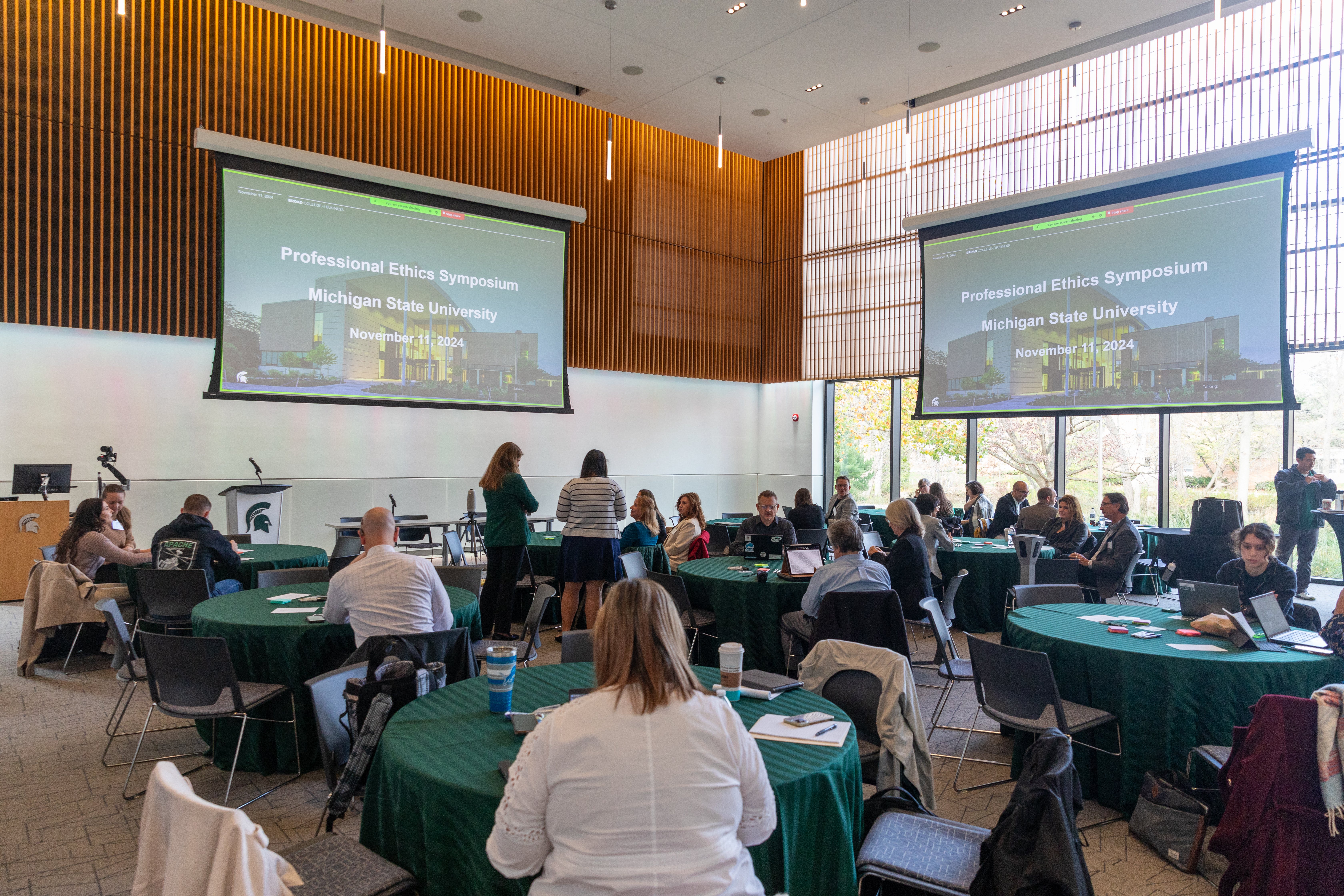The Ethics Institute at MSU
The Ethics Institute serves as the central hub for ethical guidance, collaboration, and community engagement around AI in research, education, and university practices at Michigan State University. From convening the university’s AI Summit to supporting the development of guidelines, research, and faculty working groups, the Institute has led efforts to ensure MSU’s approach to AI is thoughtful, inclusive, and aligned with our institutional values. By bringing together voices from across disciplines, the Ethics Institute fosters dialogue and shapes practices that prioritize equity, responsibility, and innovation in the age of automation.
Evidence Driven Learning Initiative (EDLI)
The Evidence Driven Learning Innovation (EDLI) research center is a collaboration of educators and researchers in the Colleges of Arts and Letters, Business and Natural Science, MSU Libraries, and MSU IT. Our mission is to humanize the digital learning experience and use a values-driven approach to develop and evaluate digital pedagogies and technologies for 21st-century learning.
Center for Education and Emerging Technologies (CEET)
The integration of Artificial Intelligence (AI) in STEM education marks a revolutionary shift in pedagogical methods and learning outcomes. AI's role in customizing and enhancing educational experiences is paramount. The Center for Education and Emerging Technologies explores and pushes forward the use of AI in STEM Education.
Michigan State University AI Research (MAIR)
The Michigan State University AI Research (MAIR), housed within the Department of Computer Science and Engineering (CSE) at Michigan State University (MSU), holds a distinguished position in the dynamic field of Artificial Intelligence (AI). With a rich history of innovation and a commitment to pushing the boundaries of technology, MAIR provides a hub of creativity and discovery in AI research. Led by a diverse team of renowned experts, MAIR endeavors include a wide range of research domains, spanning biometrics, computer vision, data mining, natural language processing, and machine learning.
Spartan Spotlights
Dr. Jeremy Van Hof
Director, Center for Teaching and Learning Innovation
As the Director of the Center for Teaching and Learning Innovation (CTLI) at MSU, Dr. Jeremy Van Hof fosters a culture of instructional excellence where pedagogy and emerging technology converge. His professional journey advances pedagogical practices, supports faculty in instructional innovation, and leverages research-driven strategies to enhance student learning outcomes. With a background in curriculum development and English education, Dr. Van Hof brings a multidimensional perspective to educational leadership—one that integrates evidence-based teaching practices, inclusive pedagogies, and the complex architecture of digital learning.
Dr. Van Hof is a leading voice in the ethical integration of generative artificial intelligence in higher education. He navigates the tension between rapid technological disruption and the human necessity of teaching, guiding institutional policy and practice at MSU. He serves as Co-PI on National Science Foundation-funded research regarding the design of AI ethics modules for STEM educators and shapes the national dialogue as co-chair of the Big Ten Academic Alliance Center for Teaching and Learning Directors group. His work posits that AI must serve as a supplement to critical thinking rather than a replacement for intellectual struggle.
His experience spans leadership in faculty development, curriculum design, and institutional change initiatives aimed at improving teaching effectiveness. He has led interdisciplinary teams to implement large-scale faculty development programs and promote equity-centered teaching approaches. His work bridges the gap between educational research and classroom practice, ensuring that faculty and students benefit from the latest insights in the learning sciences.
In his current role, Dr. Van Hof collaborates with university stakeholders, faculty, and external partners to build strategic initiatives that align with institutional priorities and national conversations on student success. His expertise in faculty mentorship, program assessment, and instructional innovation allows him to contribute meaningfully to research-practice partnerships that seek to improve educational outcomes at scale.
Recent articles:
Learn more about Jeremy and his work on the CTLI website.




